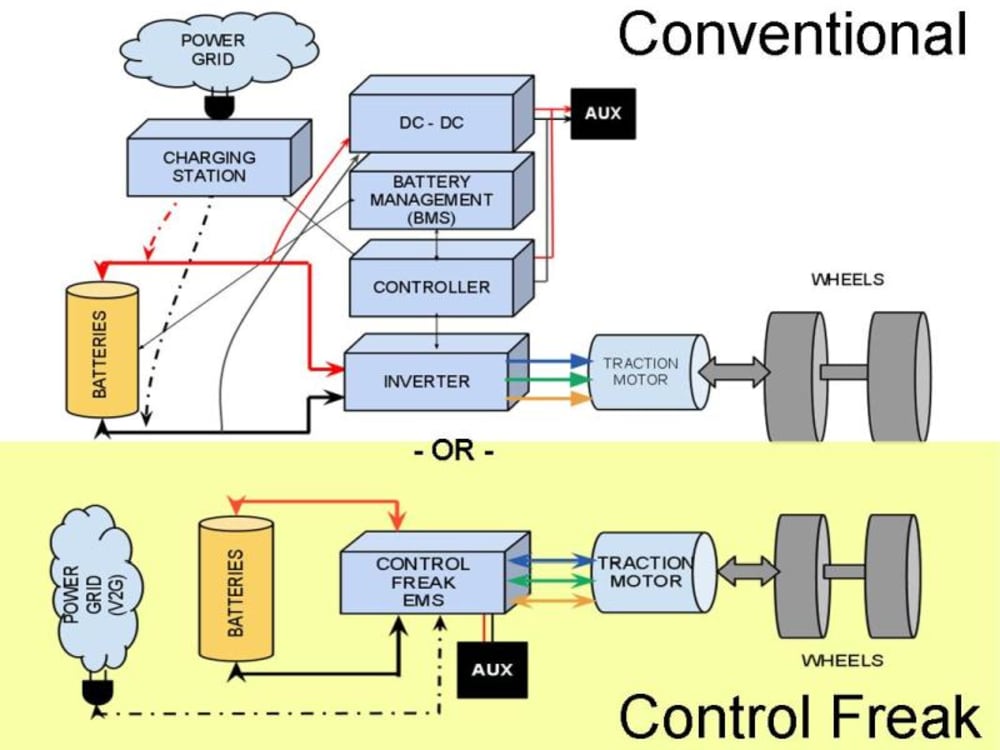As high-power batteries become available, the most significant problem to be overcome for electric vehicles is the disparate systems used to manage batteries (battery management systems, or BMS), charge batteries, traction motor controllers and power auxiliary systems.
The proposed design is comprised of a single part which, when combined with other nodes to establish a flexible and harmonious energy management system (EMS) network. While each node shares the same anatomy, their function can change as required, much like workers in a beehive.
Each cell in the battery pack has the device mounted to its terminal. Individually the device continuously monitors the batteries condition. The device is connected to a low-speed, high-current conductive matrix.
Each node is synchronized via a timing clock. A bank of capacitors, matched to each of the motor's winding inductance, produce a resonant circuit which matches switching frequency of the matrix.
By dynamically changing the 'series-parallel' connection of individual cells, the battery pack can produce only voltage/current required. As a cell's 'condition' changes it either joins or drops out of the matrix.
This schema is used when driving the motor or regenerative charging of the battery or charging from an AC outlet. When the EMS detects AC voltage the cells are switched such where the sinusoidal line voltage matches the charge voltage for the battery pack, priority based on cells state of charge.
The advantages of this design are numerous:
- Seamless systems integration (GPS, 'smart grid', IntelliDrive, Wi-Fi iPod etc.)
- Proactive monitoring and failure-prediction reporting of individual cells
- Ability to 'virtualize' a replacement cell's chemistry to match existing battery pack
- Power-agnostic - plug into standard A/C outlets (110, 220v etc.)
- Scalable/adaptable to other markets (consumer electronics for instance)
- Modular, serviceable and field-upgradable
- Low R&D costs based on standards and reusable code
- Zero Bus voltage when vehicle is off or an accident is detected
Like this entry?
-
About the Entrant
- Name:John Robitaille
- Type of entry:individual
- Patent status:none

